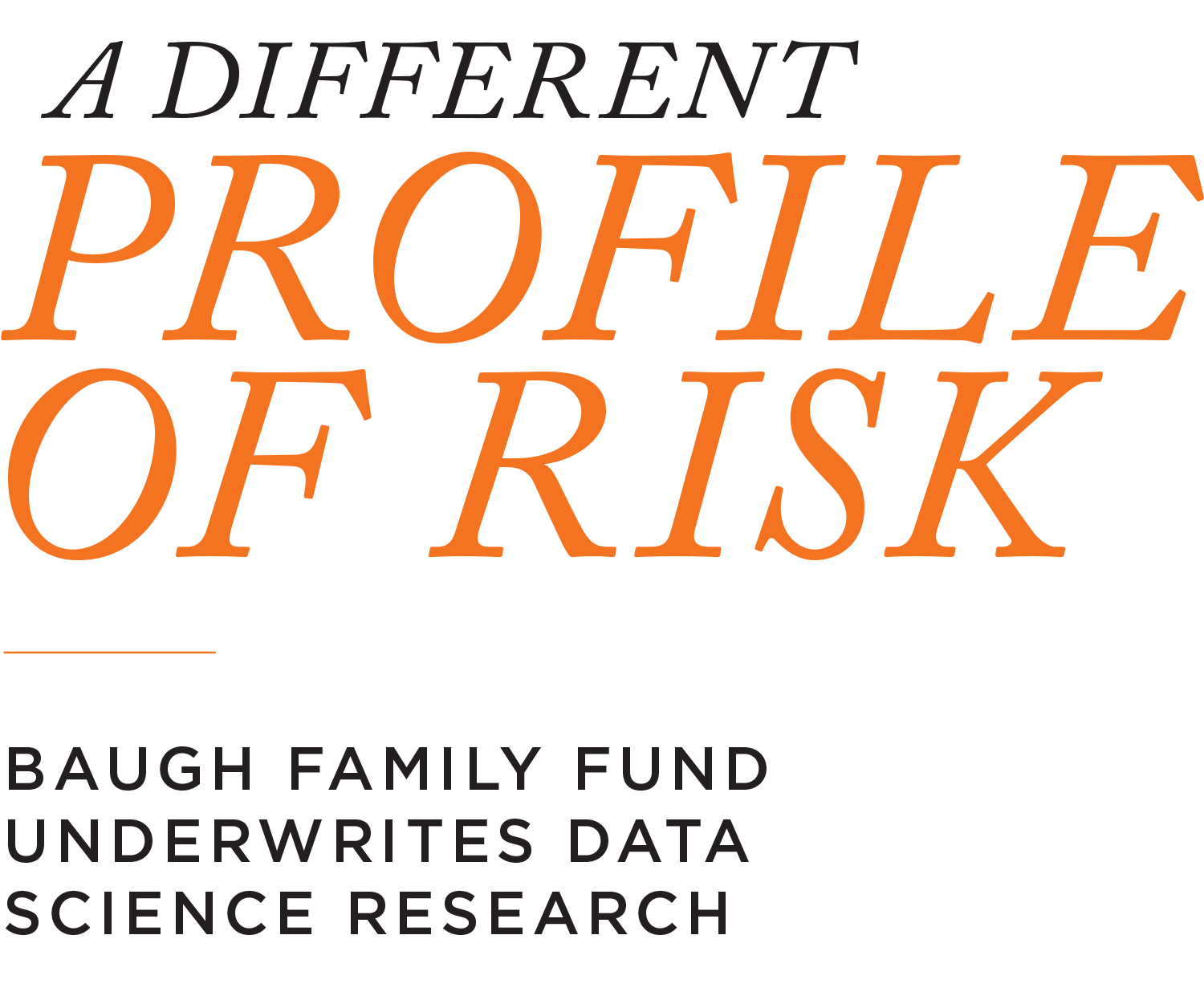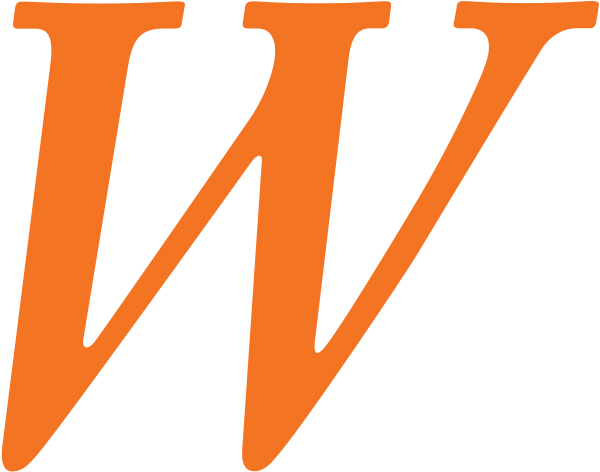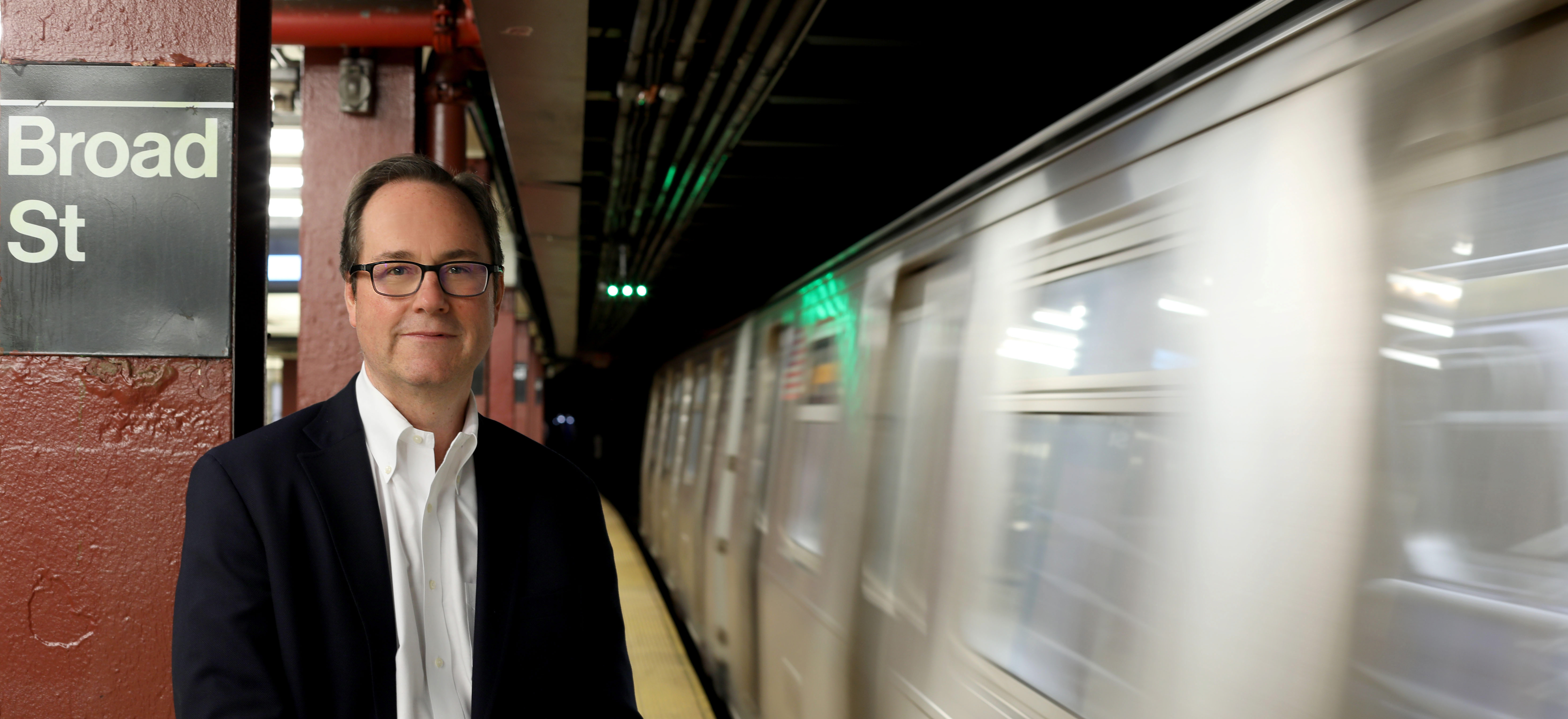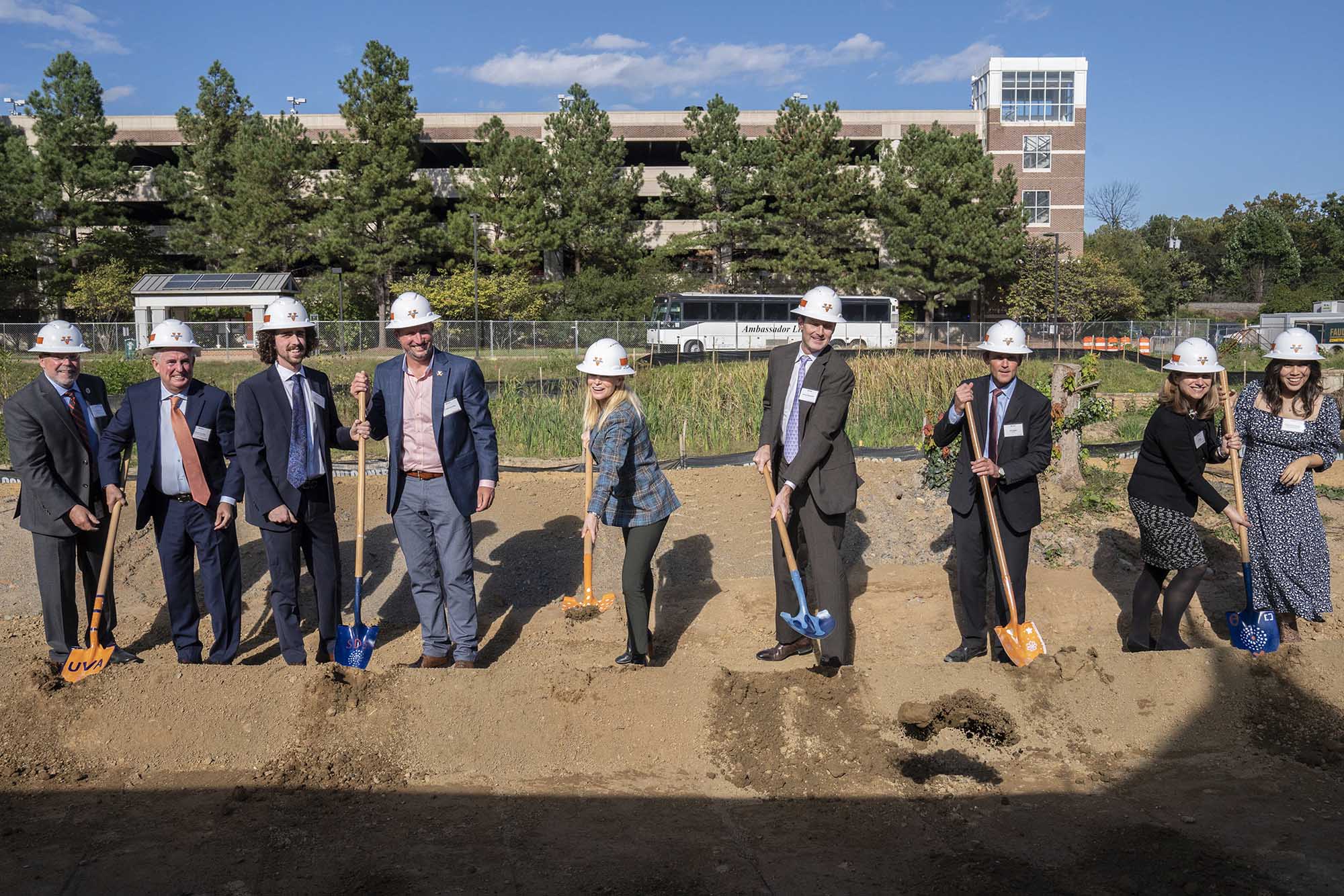A Different Profile of Risk

“I wanted to encourage the energy that the dean's team is putting into the new school.”
—Lex Baugh (Col ’83)
 hen insurance companies assess business risks, they typically factor an element of human error or omission into underwriting decisions. Let’s say a worker makes a mistake in a SEC filing or stops off at a bar on the way home from a work site and is involved in an automobile accident in a company vehicle. The most critical risks to a business can be those utterly human actions that impact the company’s financial health and well-being.
hen insurance companies assess business risks, they typically factor an element of human error or omission into underwriting decisions. Let’s say a worker makes a mistake in a SEC filing or stops off at a bar on the way home from a work site and is involved in an automobile accident in a company vehicle. The most critical risks to a business can be those utterly human actions that impact the company’s financial health and well-being.
But what happens when you remove humans from the picture? Increasingly, as the internet of things—or systems of interrelated, internet-connected objects that are able to collect and transfer data over a wireless network without human intervention—assumes a greater role in our daily reality, human error recedes into the background. What happens when financial loss comes from a faulty algorithm or a hacker?
Throw Out Your Assumptions
Lex Baugh (Col ’83) thinks we need to be prepared for the unexpected implications of technological advances, not surprised by them. Having spent most of his 37-year career at AIG, a multinational finance and insurance corporation, Baugh is currently the global chief underwriting officer for liability and financial lines. “I’ve tended to pursue my career on financial lines, the products that cover company exposure to financial loss as opposed to property damage or bodily injury,” he said. “Effectively what I’m doing is setting the guardrails in terms of those things that we’re happy to underwrite and the amount of capital that we want to deploy against any given type of risk.”
Increasingly, Baugh was finding that traditional assumptions around the notion of human error were becoming less reliable. “I realized that we were, in many cases, taking a human that might have made the error out of the process, and we were going directly from a sensor that picked up a signal to actuation,” he said. He used a big petrochemical factory as an example. “Once, you had teams of engineers who came and worked at the site in three eight-hour shifts to keep that factory going at maximum efficiency. Generally speaking, if something went wrong at that plant, it was something that they had done or not done or failed to do. And as industrial control systems come online, those human engineering interfaces are less common.
“Basically, those jobs have been taken away,” he continued. “And if you go visit one of those sites, you won’t really see anybody that you can talk to about the end-to-end operation.” Automation, industrial control systems, and artificial intelligence all reduce risk and human error, while opening up vulnerabilities with cybersecurity. The industrial internet of things—it’s the world we live in now.

I read something about the School of Data Science and I was intrigued. One of the things that I found interesting is that Dean Bourne is trying to create a facile environment for interdisciplinary study. With his background in how technology can advance medical science, I thought that’s an area of rich opportunity, and one where safety and security will be of paramount importance. These issues around cybersecurity don’t really rest in any one academic discipline. I really thought that was exciting.
Who’s Driving Now?
Baugh throws out another example, one that will have more of an effect on our day-to-day lives. “And you can also take it down to the autonomous vehicle,” he said. Today, all global or international law says that there has to be a driver responsible for the vehicle. At some point in time when the driver is totally disengaged in a fully automated vehicle, that’s not really going to make sense anymore. And so, what does that mean in terms of where that liability is going to fall? Will it be a product failure? Will it be a software failure?”
The law will eventually catch up to the science, but in the meantime, insurers will be operating in an area where the lines blur. “On the one hand this technology is making businesses safer, it’s making driving safer,” he said. “There’s definitely a safety dividend which is net good, but there’s also a shift in terms of the systemic risk. When you look at an individual making a bad decision, that’s largely an idiosyncratic event. They don’t usually make the same bad decision twice. Whereas when one drives everything through a control system, if it does malfunction, it malfunctions everywhere at the same time. So, it creates a different profile of risk, a different profile of loss that has been fascinating to me.”

University leaders ceremoniously broke ground Oct. 21 for the new School of Data Science building in the Emmet-Ivy corridor. Completion is expected in early 2024.
Research Without Boundaries
Baugh’s professional interest in the thorny questions centered on safety and security around industrial control systems led him to the School of Data Science, where he saw an opportunity to turn his curiosity into action. The Baugh Family Fund for Endowed Research in Data Science will enable students and faculty to pursue research in data science and its applications, leading to improvements in cybersecurity and more. In addition to investing in the long-term success of this research, Baugh included a dean’s discretionary fund for more immediate use.
“I read something about the School of Data Science and I was intrigued,” he said. “One of the things that I found interesting is that Dean Bourne is trying to create a facile environment for interdisciplinary study. With his background in how technology can advance medical science, I thought that’s an area of rich opportunity, and one where safety and security will be of paramount importance. These issues around cybersecurity don’t really rest in any one academic discipline. I really thought that was exciting.”
“Lex’s vision for the future really resonates with the School of Data Science,” said Philip E. Bourne, Stephenson Dean of the School of Data Science and professor of biomedical engineering. “The ever-increasing complexity of systems that run our lives without human intervention is a testament to human ingenuity, but also cause for caution. Our mission calls for safeguarding these systems and we are grateful to Lex for believing in what we do.”
The school is now searching for a new faculty member who will focus on cybersecurity in conjunction with the School of Engineering and Applied Science, a direction Baugh hopes his research fund will soon benefit. “We have many challenges facing us,” he said. “I don’t know that they’re worse than they were in prior periods or better, but they’re there. And it seems to me that education is good for much of what challenges us.
“I wanted to encourage the energy that the dean’s team is putting into the new school,” he continued. “Virginia has a fantastic history and has some wonderful academic programs that are very mature. I think this is an important step forward for the University, going through the next decade, to be a world-class institution. I thought if I could encourage that, I’d love to see that become a new strength at UVA.”

